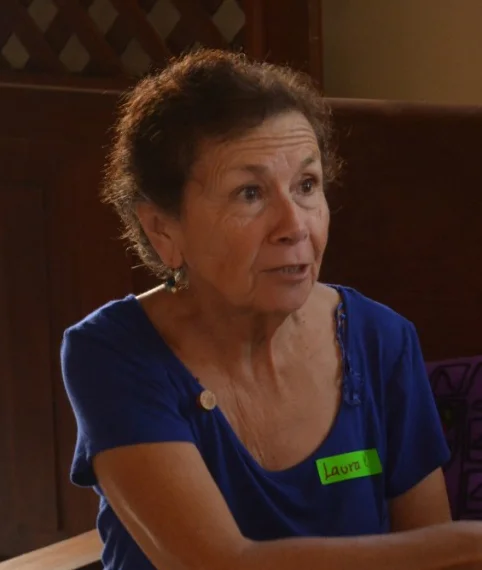PERU
Peru is the fourth largest rainforest country in the world and one of the most biodiverse areas of the world.
Although deforestation in Peru has traditionally been very low, largely due to difficulty of access, roughly 1,100 square miles of Peru's forests are cut down every year—around 80% of them illegally. This forest loss accounts for nearly half of the country's greenhouse gas emissions.
The main drivers of deforestation in Peru are agriculture and livestock, gold-mining, roads and illegal logging. The expansion of oil and gas drilling also poses a major threat to Peru’s rainforests.
Some 350,000 Indigenous people live in the Peruvian Amazon, including several tribes that have yet to establish contact with the outside world.
Legal recognition of Indigenous and community forest rights in the Peruvian Amazon has been found to reduce deforestation and disturbance by as much as 81% in the year following titling, and by 56% the year after.
Laura Vargas, Country Facilitator
María Laura Vargas Valcárcel has served as Executive Secretary of the Interreligious Council of Peru and co-Secretary of the Judeo-Christian Fellowship since 2009. She brings 30 years’ experience working with the Comisión Episcopal de Acción Social (CEAS) of the Catholic Church of Peru, 16 of which was as Executive Secretary; following this post, she was asked to assume the area of the Social Doctrine of the Church.
Previously she served as Coordinator of Justice, Peace and Integrity of Creation for the Columban Fathers, a missionary society; as Member of the Executive Committee and Vice President of Pax Christi International; and supported adult literacy programmes in Lima Norte for 17 years.
She continues to serve as a member of the Board of Directors of World Vision Peru, as a member of Pax Christi Peru, as head of the human rights team of the El Departamento de Justicia y Solidaridad (DEJUSOL) del Consejo Episcopal Latinoamericano (CELAM)—Secretariado Latinoamericano y del Caribe de Cáritas (SELACC), as a member of the Red Latinoamericana y Caribeña de Pensamiento Social de la Iglesia (REDLAPSI), as a member of the Commission of Presidential Prerogatives as well as Counselor of the Reparation Council within the Ministry of Justice and Human Rights. She holds a degree in Theology and a degree in Education with a specialty in social sciences.


